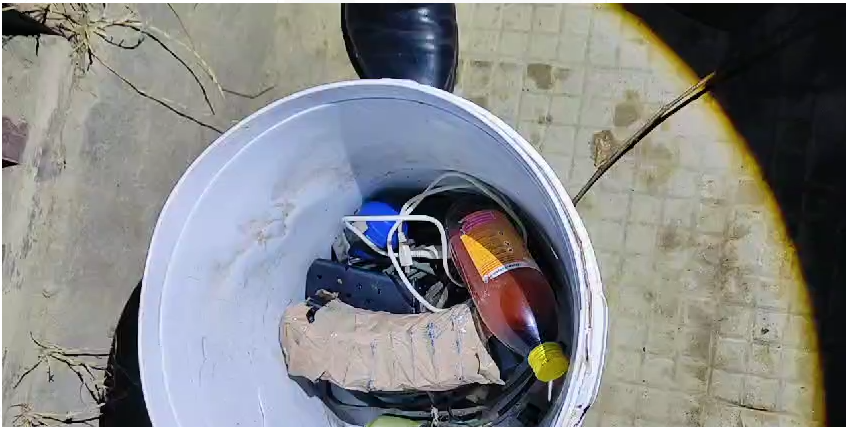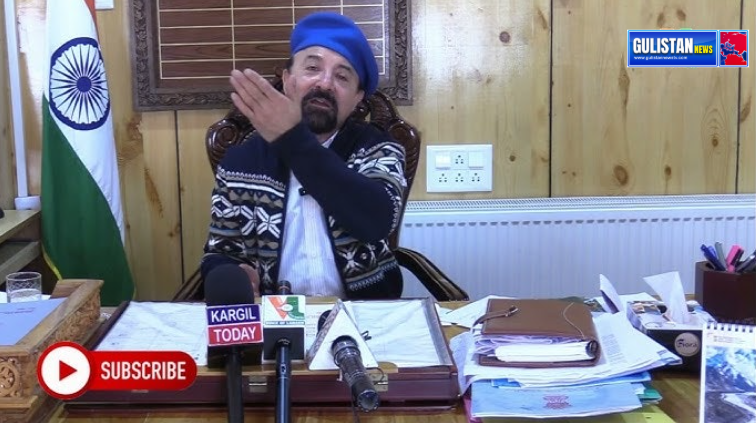Israel’s war in Gaza has created 37m tonnes of debris, much of it laced with unexploded bombs, which could take more than a decade to remove, a top UN demining official said.
Nearly seven months into the war, there is an average 300kg of rubble a square metre of land in Gaza, Pehr Lodhammar, the former United Nationals Mine Action Service chief for Iraq, told a news conference.
“Based on the current [amount] of debris in Gaza, with 100 trucks we are talking about 14 years of work … to remove it,” he said. With the war continuing, it was impossible to estimate how long clearance might take at its end, he added.
Israel has been accused of “domicide” over the intensity of its bombing campaign in Gaza, which has reduced large swathes of the strip to ruins. Sixty-five per cent of the buildings destroyed in Gaza were residential, Lodhammar said.
Clearing and rebuilding them will be slow and dangerous work because of the threat from shells, missiles or other weapons buried in collapsed or damaged buildings. On average about 10% of weapons failed to detonate when they were fired, Lodhammar said, and had to be removed by demining teams.
In Israel, an Egyptian delegation led by the country’s top intelligence official, Abbas Kamel, arrived and met their Israeli counterparts in an attempt to revive stalled talks on a ceasefire and hostage release deal.
Egyptian efforts to halt the war through negotiations have been paired with stark warnings against a planned Israeli assault on Rafah, the only place in Gaza where Israel has not sent in ground troops.
The border town shelters more than half of Gaza’s population, most displaced by fighting elsewhere, and at a time of looming famine it is also the main entry point for humanitarian aid into the strip.
An attack there would have “catastrophic effects” not only on Palestinian civilians, but on regional peace and security, the Egyptian president, Abdel Fatah al-Sisi, said this week. Cairo has previously said an Israeli offensive in Rafah would violate the decades-old peace deal with Egypt.
Israeli leaders say four Hamas battalions have taken shelter among civilians in Rafah, and must be destroyed. Troops, tanks and armoured vehicles have massed in the country’s south, in apparent preparation for the offensive.
Airstrikes on Rafah have also escalated in recent days. One of the most recent victims was a baby girl, who had been delivered from her dying mother’s womb.
Sabreen al-Rouh was the only survivor when an airstrike hit the family home on Saturday night. Her father, Shukri, and three-year-old sister, Malak, were killed immediately and her mother, Sabreen al Sakani, died in hospital soon after her daughter was delivered by caesarean section.
Mohammad Salama, the head of the emergency neonatal unit at Emirati hospital, told Reuters: “I and other doctors tried to save her, but she died. For me personally, it was a very difficult and painful day.
“She was born while her respiratory system wasn’t mature, and her immune system was very weak and that is what led to her death. She joined her family as a martyr.”
Israeli attacks have killed 34,000 Palestinians, the majority of them women and children, in nearly seven months, according to Gaza’s health authorities. Israel launched the war in response to the 7 October attack when Hamas killed 1,200 people, mostly civilians, and took 250 hostage.
Egypt’s Kamel was presenting to Israelis a “new vision” for a long-term ceasefire in Gaza, an Egyptian official told Associated Press.
In the first stage of the ceasefire there would be a limited hostage release, in return for freeing Palestinian prisoners held in Israel and allowing significant numbers of Palestinians to return to their homes in the north of the strip. Then talks of a larger deal to end the war would continue.
A crowd is gathered in front of a detailed mural on the side of a building showing the police station being blown up.
Questions in rocket-hit Sderot over whether IDF can ever destroy Hamas
Read more
There has been growing international pressure for a deal, with Hamas and Israel accusing each other of intransigence as the war continues and the toll from weapons, hunger and lack of medical care rises.
Inside Israel, however, far-right members of the prime minister, Benjamin Netanyahu’s coalition have been pressing him to send troops into Rafah.
The security minister, Itamar Ben-Gvir, said on X: “The Egyptian proposal arrived because Hamas is afraid of a Rafah operation.” He added: “Rafah now!”
US troops had begun construction of a floating pier for humanitarian aid that aimed to speed the flow of desperately needed food into Gaza, the Pentagon said.
But the complex plan is still mired in fears over security and how supplies will be delivered; critics have warned the project is in danger of becoming a “smokescreen” for the planned invasion of Rafah.
Also Read: Indian student arrested, banned from US university over pro-Palestine protest









